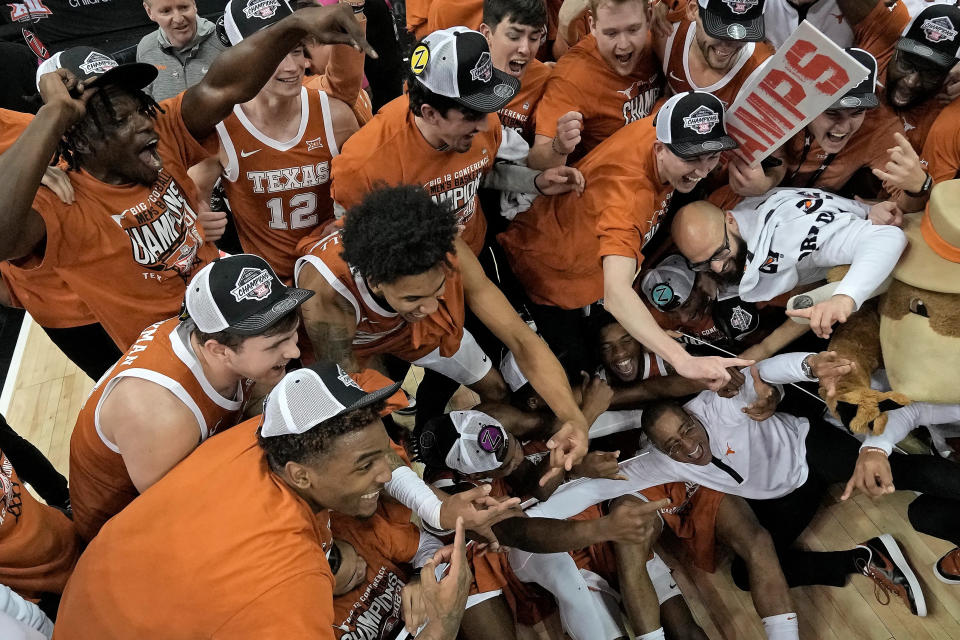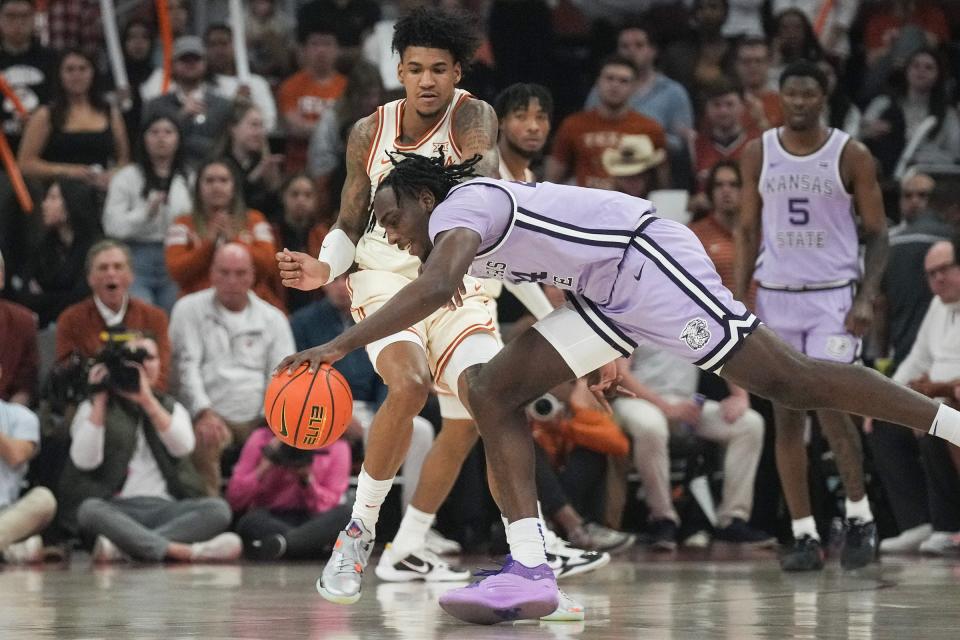Texas basketball, Rodney Terry are embracing one final run in Big 12 Tournament

KANSAS CITY, Mo. — Spend any time around Texas basketball coach Rodney Terry, and it won’t take long to find out his opinion of the Big 12.
Best conference in the country. The toughest. A grind. No easy games. No nights off.
More: Texas basketball in the Big 12: A look at the top players during the Longhorns' era
Pick the word or the cliché, and Terry has used it to describe the Big 12. And he’s not alone. All 14 coaches that have gathered in Kansas City this week for the first and last tournament with this particular version of the Big 12 Tournament — Houston, Cincinnati, Central Florida and BYU joined in the offseason — have all said the same thing. It’s been especially emphasized by Kansas State’s Jerome Tang and Cincinnati’s Wes Miller, whose respective teams are perched on the NCAA Tournament bubble and hope the clout that comes from competing in the nation’s highest-ranked conference can help sway the NCAA selection committee.
More: What does Texas basketball need to do at the Big 12 Tournament to help its NCAA case?
They’ll get no argument from Terry, who has spent a total of 14 seasons in the conference as either an assistant or head coach.
“I think this year in particular has probably been the deepest from top to bottom of all the years that I've been a part of the Big 12,” Terry said. “The Big 12 has always had great representation (in the NCAA Tournament) in terms of six, seven or eight teams that are always really good. It's always been a physical league with great coaches, coaches that have won national championships. And it’s always been a league where you have tough venues to play in, night in and night out.”
The Big 12 has been a late bloomer
The Big 12’s reputation hasn’t come from its history, however. Since its inception before the 1995-96 season, the conference has the second fewest cumulative Final Four appearances among the so-called “Power Six” conferences, which also include the Pac-12, the Big Ten, the SEC, the ACC and the Big East. Only the Pac-12, now on its deathbed, has fewer Final Four appearances.
From 1997 to 2019, the Big 12 produced just one national champion in Kansas (2008).
More: Texas basketball preview, prediction: Longhorns open Big 12 Tournament against Kansas State

But the Big 12 has grown into a juggernaut over the past decade. From 2014-23, the Big 12 has 60 NCAA selections, the third-highest total of any conference. Since 2014, the Big 12 has been rated as the top conference eight times in the RPI and KenPom ratings, analytical rankings that measure a team’s success compared to its schedule and opponents’ schedule. No other conference comes close to that consistency in the past decade, and the Big 12 has produced two of the last three national champions in Kansas (2022) and Baylor (2021).
Texas, Oklahoma in the SEC will impact college basketball
Next year, both the Big 12 and the SEC will look different come tournament time. Both conferences will expand to 16 teams; Oklahoma and Texas will switch from the Big 12 to the SEC, and the Big 12 will compensate for the loss of those two programs by adding Arizona, Arizona State, Colorado and Utah.
Kentucky aside, Texas’ new conference won’t have that level of quality. Over the past decade, the SEC has averaged a rating of No. 5 among the conferences in the RPI and KenPom rankings. No SEC team has won a national title since Kentucky in 2012, and no team has played for a title since Kentucky in 2014. Since that game, South Carolina (2017) and Auburn (2019) are the only SEC teams to reach a Final Four.
Texas knows what to expect in the SEC
From his perspective, Terry thinks the primary difference between the conferences lies in the half-court battles that often determine Big 12 victors. The Big 12 often treats the paint like a gladiatorial arena, with the officials blowing the whistle only when they sense a little blood. In the SEC, teams often like to get out and run more and avoid such half-court fisticuffs.
Of course, Terry quickly cites a Tennessee team coached by Rick Barnes as an exception. Barnes coached the Longhorns for 17 years and helped define the Big 12’s reputation as a bruising conference. Terry served as an assistant to Barnes for nine years.
“I'm not going to say it's not a physical league, because there are some teams in that league that are physical,” Terry said. “Coach Barnes at Tennessee, they’re pretty physical team.
“But I think the scoring is probably up just a tad in the SEC, where they're getting out and playing more in transition. I think the Big 12 has always been a very good defensive league; teams put a big premium on the defense and the half-court defense in particular.”
Wednesday's game
Big 12 second round, T-Mobile Center in Kansas City, Mo., 6 p.m., ESPN+, 1300 — (7) Texas (20-11) vs. (10) Kansas State (18-13)
This article originally appeared on Austin American-Statesman: Texas basketball gets one more shot at Big 12 before heading to SEC
